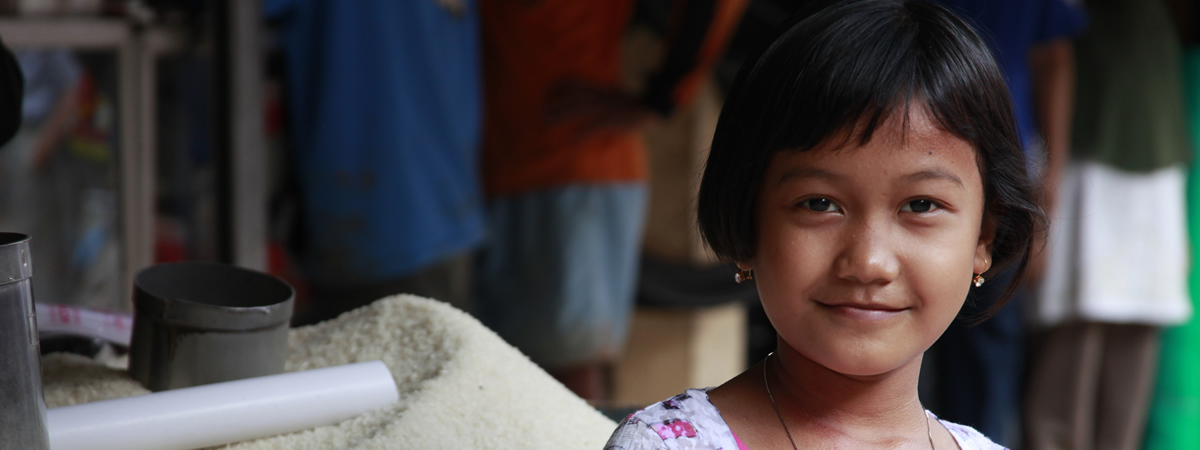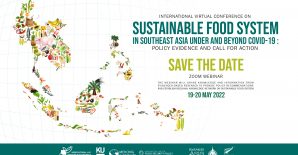China willing to buy Kazakh organic agricultural products: Vice PM
(AkiPress, 22 Feb 2016) "China has expressed his willingness to buy Kazakh organic agricultural products and we just need to embrace the opportunity," First Deputy Prime Minister of Kazakhstan Bakytzhan Sagintayev has said at the extended board meeting of the Ministry of Agriculture. “They are focusing their business and people on Kazakhstan. We only need to embrace the moment. They will buy everything: grain, meat, honey, vegetable oils and dairy products. Moreover, they say that they will invest in Kazakhstan, establish joint ventures and jobs, pay taxes. What else do we need? Welcome it and create the necessary conditions for such work," Sagintayev said. However, according to him, there is a problem in coordination of our state bodies on the standardization of products.
(24 News Agency, 20 Feb, 2016) The prospects of joining the EEU of member states, including Kyrgyzstan, to be discussed in the framework of the Bishkek forum. As the press service of the Kyrgyz parliament reports, at the plenary session of the Parliament on February 18, the Speaker Asylbek Jeenbekov said that the international forum entitled "Eurasian Economic Perspective" will be held in the Kyrgyz capital on April 8, 2016. According to him, representatives of the countries - members of the Eurasian Economic Union and "interested parties" will take part in the event. Recall, at the same meeting, the question on the need to discuss the situation with the accession of the Kyrgyz Republic to the EEU was raised by the head of Committee for the Agrarian Policy, Water Resources, the Environment and Regional Development Mirlan Bakirov (Onuguu-Progress). Then he said that Parliament should hold a "government hour" on the investment climate in the country.
Dollar rate in Kyrgyzstan falls by 1.2 soms over week
(24 News Agency, 20 Feb, 2016) Dollar rate in Kyrgyzstan fell by 1.2 soms over the week.
Today, the exchange offices of the capital and the commercial banks buy currency at 74.2 soms, and sell - at 74.4. Recall, last week the dollar cost 75.4-76 soms. At the same time, the nominal rate is set at around 74,4047 soms (reduction per day - 0.08 percent).
EBRD co-finances key Centre-South highway in Kazakhstan
(EBRD News, 18 Feb, 2016) The European Bank for Reconstruction and Development (EBRD) is continuing to promote modern infrastructure and regional connectivity in Central Asia by supporting a key road link in Kazakhstan. The Bank is extending a US$ 103 million loan to Kazavtozhol, a national road operator, under the sovereign guarantee for the reconstruction and widening of an 80 km section of the so-called Centre-South Road Corridor, leading from Astana to Almaty, between the villages of Kurty and Buribaytal in the Almaty region.
The EBRD loan is part of a wider programme to rehabilitate and upgrade a 228-km stretch of the highway which remains unmodernised.
(Eurasain Economic Commission, 18 Feb 2016) On February 17 in Moscow, experts of the Eurasian Economic Union (EAEU) countries agreed on a draft recommendation of the Board of Eurasian Economic Commission "On coordinated development of stock tools of trade in agricultural products”. They discussed main obstacles and further ways of forming an organized commodity market in the Union. The discussion took place at the session of the Working Group to the Consultative Committee on agroindustrial complex for the sector “Exchange Trade in Agricultural Products”. The event was organized by the Department of Agroindustrial Policy of the EEC with the aim of reaching an agreed position of the Union countries in respect of the draft recommendations.
World Bank and Government of Tajikistan Sign Project to Strengthen Public Finance Management
(The World Bank Press Release, 17 Feb 2016) The Minister of Finance of the Republic of Tajikistan, Abdusalom Qurboniyon and the World Bank Country Manager for Tajikistan, Patricia Veevers-Carter, today signed an agreement to finance the Public Finance Management Modernization Project II (PFM-II). The project is financed from the International Development Association in the amount of US$10 million and from the United Kingdom Department for International Development (DFID) in the amount of US $9.8 million.
EU, Tajikistan review the state of bilateral relationship
(Asia-Plus, 17 Feb, 2016) The European Union (EU) and Tajikistan held their fifth Cooperation Council meeting in Brussels on February 16. According to the EU Delegation to Tajikistan, during the Cooperation Council, the European Commission reaffirmed its commitment to provide new development funding of €251 million to Tajikistan for the period 2014-2020. The funds will focus on vital sectors for growth and social stability, such as rural development, health, and education, which are particularly important in the present economic climate prevailing in Central Asia. The Cooperation Council also reaffirmed the commitment of both parties to strengthen relations in a number of cooperation areas, and took stock of the progress made since the fourth Cooperation Council meeting between the EU and the Republic of Tajikistan in October 2014.
Publications
(A World Bank Report, Feb 2016) The 2016 World Development Report (WDR): Digital Dividends, is the World Bank's most important analytical publication and has been published annually since 1979. Each year it focuses on a contemporary topic of interest to the broader development community—this year’s Report aims to expand our understanding of the impact of digital technologies on the lives of poor people in developing countries. The WDR 2016 documents many profound and transformational effects of digital technologies. While the internet, mobile phones and other digital technologies are spreading rapidly throughout the developing world, the anticipated digital dividends of higher growth, more jobs, and better public services have fallen short of expectations, and 60 percent of the world’s population remains excluded from the ever-expanding digital economy. (Russian Version)
The Marginalization of Rural Women Entrepreneurs in Tajikistan.
Boqikhodjaeva, Dilorom. Policy Brief No 14. Central Asia Program, Institute for European, Russian, and Eurasian Studies. 17 Feb 2016. Tajikistan is confronting persistent gender inequality. Due to men’s labor out-migration (between 800,000 and one million people for a population of 8 million), women have become massively involved in farming and household plot work, such as growing fruits and vegetables for family needs. However, rural women continue to lack access to land, financial services, and social justice. Gender equality is enshrined in many legal and political documents, but the gap between statutory rights and their implementation is immese. This gender inequality is further magnified in conditions of poverty. Indeed, Tajikistan is the poorest country in Central Asia, with a GDP per capita of $1,080, compared to Kazakhstan’s $11,850 or Turkmenistan’s $8,020 as of2014. About 53% of the population lives below the national poverty line and more than half of the population is still working in the agricultural sector. This article aims at understanding some of the factors that make gender inequality so persistent in rural Tajikistan. It is based on the author’s experience as a gender officer for donor organizations working in the country’s rural regions. In addition, I share my observations as a member of Tajik society who grew up in Soviet Tajikistan and lived through the difficult years of the civil war (1992-1997) and reconstruction efforts. In order to validate my personal experiences and observations, I triangulate them with secondary sources represented mainly by academic studies, journalistic accounts of developments in Tajikistan, and donor reports on specific projects and activities in the country’s rural regions.




Leave a Reply